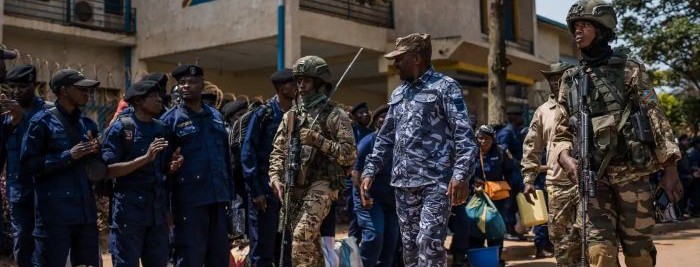(3 Minutes Read)
In a potentially groundbreaking development, the technical teams of Rwanda and the Democratic Republic of Congo (DRC) have initialled a draft peace agreement aimed at ending the protracted conflict in eastern Congo. The announcement was made on Wednesday through a joint statement by the governments of Rwanda, the DRC, and the United States, which has played a central role in facilitating the talks.
The draft agreement, which is expected to be officially signed at a ministerial level on June 27, was reached after three days of intensive negotiations. It lays out several key provisions designed to reduce tensions and establish a framework for lasting peace in the mineral-rich but conflict-ridden region. The eastern DRC has long suffered from violence involving various armed groups, and the latest round of fighting has severely escalated humanitarian concerns and regional instability.
According to the joint statement, the provisional agreement addresses critical issues such as the respect for territorial integrity, an immediate cessation of hostilities, and the disengagement, disarmament, and conditional reintegration of non-state armed factions. Among its most significant elements is the establishment of a joint security mechanism. This mechanism is based on proposals previously discussed under Angolan mediation, which had aimed to stabilize the border and improve bilateral cooperation on security matters.
The breakthrough comes amid renewed efforts by the administration of former U.S. President Donald Trump to broker a resolution to the ongoing conflict. The agreement also raises hopes of unlocking billions of dollars in Western investments in eastern Congo, a region rich in strategic minerals such as tantalum, gold, cobalt, copper, and lithium — all critical to the global tech and energy industries.
This is not the first attempt at brokering peace between the two countries. In the past year, Rwandan and Congolese delegations reached two separate agreements under the mediation of Angola, centered on the withdrawal of Rwandan troops and coordinated military action against the Democratic Forces for the Liberation of Rwanda (FDLR), a Hutu rebel group accused of ties to the 1994 Rwandan genocide. However, those earlier efforts stalled when ministers from both sides failed to formally endorse the terms.
In March, Angola withdrew from its mediating role after repeated failures to de-escalate the situation. Since then, the conflict has worsened, with the Rwanda-backed M23 rebel group launching a major offensive that resulted in the capture of eastern Congo’s two largest cities. The advances by M23 have reignited fears of a broader regional war.
The DRC accuses Rwanda of directly supporting the M23 rebels through the provision of troops and military equipment. Rwanda, however, denies these allegations and insists its involvement is limited to self-defense operations against Congolese government forces and hostile Hutu militias, which it claims pose a security threat along its border. These militias include elements believed to be connected to the perpetrators of the 1994 genocide in Rwanda, during which nearly one million people — predominantly ethnic Tutsis — were killed.
Read Also;
https://trendsnafrica.com/sadc-to-begin-final-withdrawal-of-troops-from-drc/
If signed, this new peace agreement could represent a turning point in one of Africa’s most enduring and complex conflicts, though past failures underscore the challenges ahead. The international community will be closely watching the scheduled June 27 signing, which could pave the way for a new phase of cooperation — or mark another missed opportunity in the region’s troubled history.





